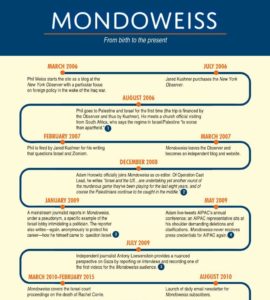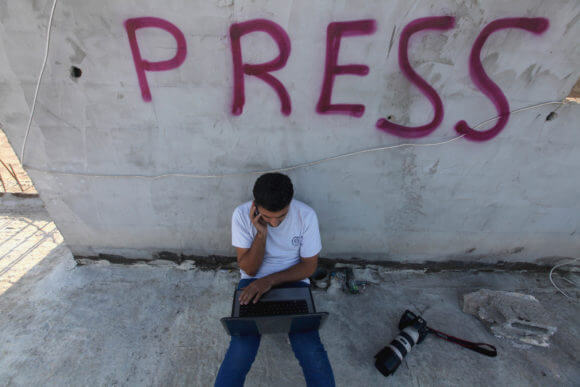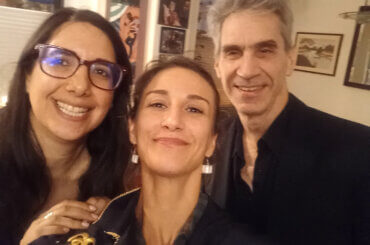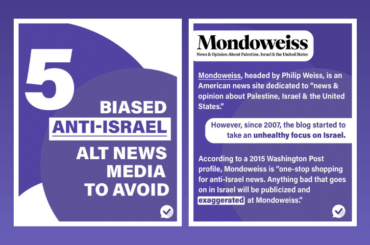|
GREAT NEWS! You, our readers, have been incredibly responsive to the challenge a donor issued at the beginning of this week in honor of Mondoweiss’s thirteenth birthday. We are well on track to exceed the initial challenge goal, so our donor has upped the ante! As of now, he will donate $20,000 if we can raise $20,000 from the rest of you by the end *Oh, and do check out this timeline showing key moments in our history. |
In November 2008, an email newsletter landed in my inbox, from “Women In Green,” a right-wing Israeli group dedicated to “safeguarding our G-d given Biblical homeland.” Six months earlier, I might have just deleted the message without reading, but that November I was in transition to my new position co-editing Mondoweiss and I took a second look. That moment of curiosity ended up leading me and Phil Weiss on a joint investigative reporting effort that exposed an ugly example of how support for settler violence is embedded and normalized in mainstream American Jewish culture.
After glowing description of the group’s projects in “Judea and Samaria,” the email had a link at the bottom to donate via a U.S. nonprofit, the Central Fund of Israel. Intrigued, I did some digging and found the tax documents for Central Fund of Israel—and discovered some very interesting information. As Phil and I reported in a series in mid-December 2008, the Fund received contributions from some notable American Jews including actor Kirk Douglas, and gave hundreds of thousands of dollars to some very unsavory vigilante settler groups in the occupied territories.
While I pored through the documents, Phil made calls. He interviewed the Fund’s main New York officer, who spoke forcefully against a two-state solution. Phil showed Mondoweiss readers how tax-free U.S. donations to settler vigilantes were funneled by an Upper West Side couple who fit easily in the milieu of wealthy American Jewish society. They understood their efforts as charitable, religiously inspired good works. We identified three power figures linked to the Fund: Loews CEO James Tisch, banker Michael Milken, and Alan Greenberg, one-time CEO of Bear Stearns. As Phil wrote, “The truth is that the settlements have drawn on support from the heart and soul of the American Jewish leadership.”
It’s been more than ten years since Phil and I broke the story about Central Fund of Israel. The story immediately got attention, and journalists are still uncovering all the ways U.S. supporters funnel funds to settlements tax-free. But we reported the story first, and Phil and I were on our way.
Since then, Mondoweiss has shifted much of our reporting focus to stories directly from Palestine. At the time, we were just two people with almost no resources and a loyal but small audience; today, we’re a stable and growing organization with partners, freelancers and a staff that achieves beyond its numbers. And our work reaches hundreds of thousands of people every month. But in a fundamental way, that first exciting investigation I worked on with Phil still represents the core of what Mondoweiss aims to do—and why I start work every morning with energy and focus. And why we ask for your support to keep the work going and growing.

Like the articles we publish today, that series on Central Fund of Israel presented clear, well-sourced information about the violence of Israel’s colonial regime and drew straight lines to American underwriting of that regime. Like Mondoweiss content today, that series sought to expose how the U.S. Jewish establishment is implicated in Israel’s crimes—but also to identify potential fault lines in the establishment’s power. And like our work today, the series provided readers with an example of how news looks different when it’s reported under the premise that Palestinian lives matter.
Throughout this decade, our mandate has been to cover activists’ efforts to inject Palestine and critiques of Zionism into the American mainstream, and to elevate the voices of Palestinians—those directly affected by Zionism and American support for Israel. Mondoweiss has been, and will continue to be, a part of the internet revolution—the process by which the traditional gatekeepers of news and opinion are held accountable to the lived realities of those they have ignored. One of our accomplishments that I am proudest of to this day is a series we ran on the two-year anniversary of Cast Lead where young people in Gaza wrote about what surviving the war meant to them and their families.
While our values and mission have remained consistent, there has been change since 2008. In the last ten years the Palestine solidarity movement that we are a part of has helped to fundamentally shift the discourse around Palestine in the United States. In 2008, for just one example, the term “BDS” was unknown beyond the most dedicated activists; today, every member of the U.S. Congress must take a stand on it. It is still a struggle to get mainstream media and elected politicians to recognize Palestinian humanity and aspirations, but I do believe it is getting better, and I think Mondoweiss has played a part in that.
Today, as we move into our fourteenth year, we ask you: please continue to donate so Mondoweiss can continue standing for rational, humane U.S. policy and a free, just Palestine. The information we share is vital to making change.
P.S. Mondoweiss has been able to move along its path toward greater influence because of financial support from readers like you. While diehard Zionists get tax deductions for their gifts propping up settler violence, our U.S. donors get tax deductions for helping us tell the truth. We are independent thanks to reader support, which means we can keep publishing the work of Palestinian reporters, photographers, poets and activists—those whose stories are not shared elsewhere.


